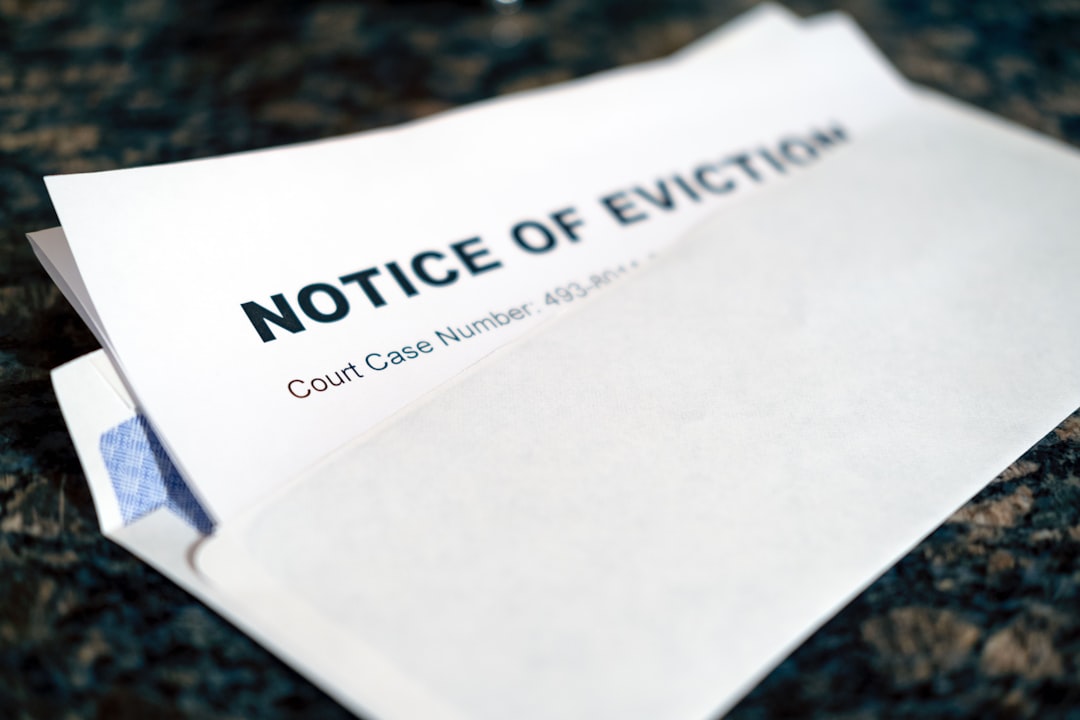Common Myths Regarding Eviction Attorney Miami Debunked
Common Myths Regarding Eviction Attorney Miami Debunked
Blog Article
What Are the Common Instances Dealt With by an Eviction Legal Representative in Tenant Disputes?
Expulsion attorneys play a vital duty in attending to a range of lessee disagreements that can arise in rental contracts. Common cases include non-payment of lease, lease violations, and wrongful expulsion cases, amongst others. These experts navigate complicated lawful structures to represent both property managers and tenants, guaranteeing that all celebrations recognize their rights and obligations. The ins and outs of each instance can considerably affect the result, questioning about the effectiveness of legal methods used. Recognizing the nuances of these disagreements can brighten the broader implications for renter legal rights and property manager duties. What might these effects disclose concerning the real estate landscape?
Non-Payment of Rent
Non-payment of rent is a widespread problem that can lead to intricate lawful conflicts between proprietors and occupants. If the occupant does not comply, the property manager might file for eviction in the proper court.
In numerous territories, the lawful structure surrounding non-payment of rent is developed to safeguard both events. Tenants may have defenses readily available, such as alleging uninhabitable living problems or inappropriate notification. However, property managers must follow strict procedures mandated by law, consisting of offering appropriate notification and filing the essential paperwork (eviction attorney miami).
An eviction attorney plays a critical role in navigating these disputes. They can help landlords understand their rights and responsibilities while making sure conformity with regional guidelines. For occupants, lawful depiction can give understanding right into possible defenses and aid bargain desirable end results. Inevitably, dealing with non-payment of rent effectively requires a comprehensive understanding of the legal landscape to avoid extended disputes and ensure a reasonable resolution.
Lease Infractions
Lease violations represent a significant issue in landlord-tenant connections, as they can cause disputes and potential eviction procedures. These infractions occur when lessees stop working to follow the terms laid out in their lease contracts. Common instances include unapproved subletting, failure to preserve cleanliness, maintaining animals without approval, or taking part in turbulent habits that influences other lessees.
Landlords have a legal commitment to attend to these violations without delay - eviction attorney miami. Usually, they will provide a written notification to the renter, describing the specific violation and giving a stated duration for correction. If the renter falls short to conform, the proprietor may initiate expulsion process, which frequently demands legal intervention
Expulsion legal representatives play a vital role in these circumstances by making certain that the expulsion procedure adheres to neighborhood regulations and guidelines. They can assist property managers in collecting essential evidence, drafting records, and representing them in court. In addition, lessees dealing with accusations of lease offenses might look for lawful advice to oppose the cases or bargain terms to stay clear of expulsion. Recognizing the subtleties of lease offenses is crucial for both events, as it aids keep a reasonable and legal rental atmosphere.
Wrongful Expulsion Insurance Claims
Wrongful eviction claims are a critical facet of landlord-tenant legislation, dealing with scenarios where an occupant is eliminated from a rental residential property you can find out more without legal justification. Such cases commonly arise when landlords stop working to follow correct legal treatments during the eviction procedure, including not giving the needed notice or conducting evictions without a court order.
The lawful framework surrounding wrongful expulsion differs by territory however generally supplies tenants with the right to object to an expulsion if it lacks a valid factor or if due process was not observed. Typical premises for wrongful eviction claims consist of vindictive actions by the property manager, eviction based on biased factors, or eviction for reasons that breach regional or state regulations.
In going after a wrongful expulsion case, renters might seek different solutions, including reinstatement to the rental residential or commercial property, problems for shed possessions or psychological distress, and legal fees. An eviction attorney plays a critical function in these cases, assisting lessees in gathering evidence, navigating court treatments, and advocating for their legal rights.
Recognizing the subtleties of wrongful eviction cases is important for both renters and proprietors to make sure compliance with the law and to safeguard their corresponding rate of interests within the rental connection.
Tenant Civil Liberty Issues
Several occupants may be unaware of their legal rights, which can lead to exploitation and unreasonable therapy by landlords. Understanding lessee rights is crucial for keeping a reasonable rental connection and protecting oneself from prospective misuses. Typical occupant civil liberties include the right to a habitable living environment, defense versus discrimination, and the right to privacy.
Lessees deserve to request required repair work and upkeep, and proprietors are legitimately bound to address these problems without delay. Additionally, renters are safeguarded under reasonable housing laws, which prohibit discrimination based upon race, sex, religion, and other factors.
Furthermore, tenants deserve to privacy, meaning property owners can not go into the rental unit without correct notification, except in emergencies. Several occupants are likewise unaware of their civil liberties pertaining to down payment, consisting of the need for property managers to return down payments within read the article a certain duration and provide itemized reductions for any type of damages.
When conflicts arise over renter legal rights, an expulsion attorney can give important assistance and representation to assist renters insist their rights and navigate complex lawful situations. Awareness of these legal rights encourages occupants to stand versus unfair methods and safeguard their housing stability.
Home Damages Disputes
Building damages disputes often arise between tenants and landlords, making complex the rental connection and potentially causing lawsuit. These disagreements typically focus around insurance claims of problems incurred throughout the tenancy that surpass typical deterioration. Landlords might look for payment for repair services they think are the result of occupant neglect, while tenants may challenge such insurance claims, arguing that the problems were pre-existing or an outcome of elements past their control.

In many instances, arbitration might deal with disagreements without resorting to lawsuits, conserving both events time and resources. If unsettled, these conflicts can escalate into eviction proceedings, underscoring the value of legal depiction in safeguarding the civil liberties and interests of both landlords and renters.
Final Thought
Expulsion lawyers play a vital function visit homepage in fixing renter disagreements by resolving different usual situations, consisting of non-payment of rental fee, lease infractions, wrongful eviction claims, occupant rights issues, and home damages disputes. Their knowledge facilitates a much better understanding of lawful civil liberties and duties for both property owners and tenants. By navigating the intricacies of eviction processes and advocating for fair therapy, eviction legal representatives add dramatically to keeping justice within the rental real estate system.
If the renter does not comply, the property owner might submit for eviction in the ideal court.

Additionally, renters dealing with accusations of lease violations might look for legal guidance to oppose the claims or discuss terms to avoid eviction. Landlords might look for payment for repair work they think are the result of lessee carelessness, while occupants might contest such claims, suggesting that the damages were pre-existing or an outcome of aspects beyond their control.
Eviction lawyers play an important function in solving lessee disagreements by addressing different common cases, consisting of non-payment of rental fee, lease infractions, wrongful eviction insurance claims, renter rights problems, and building damages disputes.
Report this page